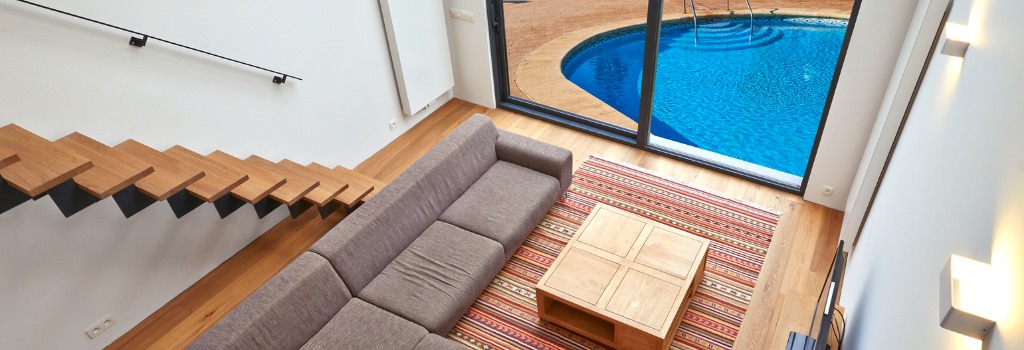As the fall season approaches, it becomes painfully clear that the lazy days floating in the pool are limited. Or are they?
A pool heater can turn your swimming pool into a year-round source of aquatic entertainment instead of a winter eyesore that requires extra maintenance with no benefit. If you’ve decided to invest in a pool heater, the real question is which type of pool heater you’re going to get. The heating options include:
- Electric
- Natural Gas
- Solar
- Propane
Let’s take a closer look at the pros and cons of the two most common options: natural gas and electric pool heaters.
The Pros and Cons of Electric Pool Heaters
Do you like to take a dip daily? Then an electric pool heater may be the way to go. Electric pool heaters are very common in the U.S. There’s a wide selection to choose from, and some models are extremely energy efficient. There are two types of electric pool heaters:
Plug-in Electric Pool Heaters – These are lightweight, portable, and easy to install as well as to store.
Hard-Wired Electric Pool Heaters – The set up requires a licensed electrician to wire the heater into the home’s electrical system, which may be required for a large pool.
PROS
- Electricity is usually the most convenient and ready available heating source for a pool.
- Can be easily unplugged and stored for the winter if not used.
- Quieter operation than most natural gas pool heaters.
- Fairly low operation cost.
- Can find very compact, energy-saving models for small pools.
CONS
- Some electric pool heaters aren’t efficient and require a lot of electricity to heat the water making them expensive to run. This is often the case for electric resistance heaters.
- It can take a while to heat up the water when it’s cold out.
- Installation and servicing may require a licensed electrician.
- Electric heat pump pool heaters tend to be more expensive than natural gas pool heaters.
- Installation can be expensive.
The Pros and Cons of Natural Gas Pool Heaters
If you already use natural gas at your home, then you may want to consider a natural gas pool heater. Even if you don’t have natural gas lines, this type of heater is still an option.
PROS
- Inexpensive to install.
- Simple connection if a gas line already exists near the installation site.
- Very effective at warming up a large pool.
- Can be more energy-efficient than electric pool heaters.
- The pool heater will still work if the electricity goes out.
- Fairly inexpensive compared to other types of pool heaters.
- Good option if you only plan to warm up the pool occasionally.
CONS
- You will have to install a gas line if one doesn’t already exist, which can be very expensive.
- Typically more expensive to operate than electric heaters.
- Natural gas is more dangerous than electricity.
Quick Look at Solar Pool Heaters
If your property is well-suited for solar this eco-friendly heating option will be the cleanest and most cost-effective over the long-term. PoolResearch.com estimates that harnessing the energy of the sun to heat your pool only costs $10 a month or $120 annually if you warm the pool year-round.
Compare that to $120-$200 a month for electric heat pump heaters and $200-$400 a month for natural gas and the upfront cost of a solar water heater isn’t so bad.
Verde Energy has an eco-friendly electricity plan for your electric pool heater! We provide over a quarter of a million residences and businesses from Ohio to Massachusetts with clean electricity options. See if plans are available in your area.



